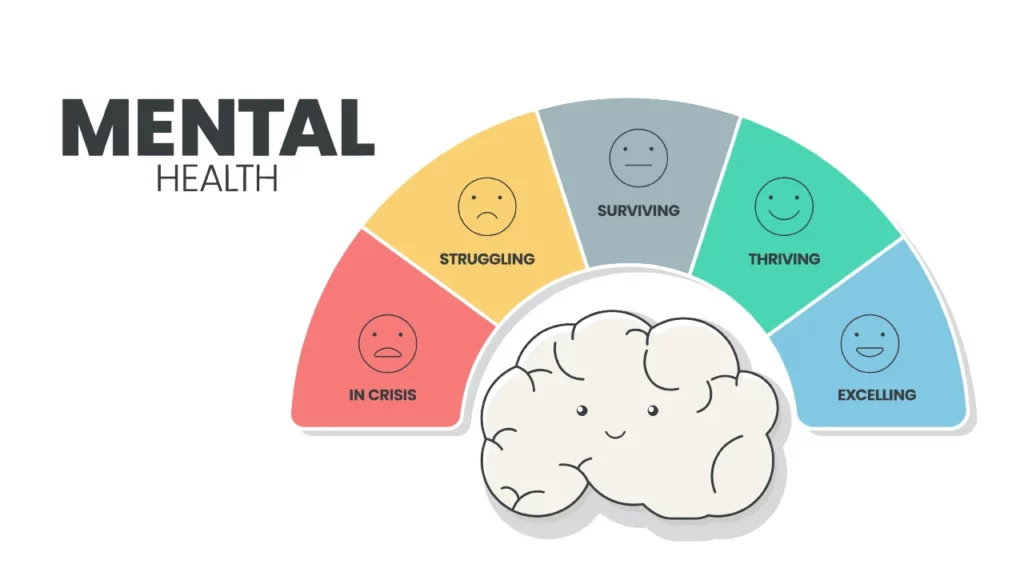Parents Worry More About Teen Mental Health During the Holidays
Stress, Depression, Anxiety, and the Holidays
For many parents, their relationship with their teenagers is one of the most challenging aspects of parenting. This is especially true if your teen has mental health issues. The holiday season is a time when families come together, but it can also be when the pressure and holiday stress are highest. Resulting in stressful confrontations and arguments. In fact, calls to police departments about children in a mental health crisis increase substantially during holidays.
It can be incredibly difficult for family members dealing with depression, anxiety, and other mental health disorders, especially teens who are at risk. The combination of holiday stress, extra free time, and lack of structure often leads to teens spiraling out of control.
The Teen Mental Health Crisis
Adolescent depression and anxiety have reached crisis levels, so much so that the Surgeon General issued a public advisory. The American Academy of Child and Adolescent Psychiatry and the Children’s Hospital Association have declared a national emergency in children’s mental health.
Nationally, calls regarding suicidal thoughts have quadrupled. At the same time, nearly 45% of high school students report being persistently sad or hopeless and unable to engage in regular activities. Sadly, suicides among 10 – 19-year-olds have increased dramatically as well.
These statistics and reports are understandably frightening for parents. But it’s important to remember that help is available, and many resources can assist you through these challenging times. Talk to your child’s school, doctor, priest, or pastor about mental health services that might provide some guidance and support. You are not alone!

Recognizing Destructive Teen Behaviors
If your child has been diagnosed with mental health issues for a while and is engaging in destructive behaviors like:
- Hanging out with the wrong friends.
- Using drugs, abusing alcohol, and partying.
- Disappearing for hours at a time, and you are worried sick.
- Riddled with anxiety and becoming more aggressive, rebellious, demanding, or angry.
- Sinking into a deep depression and harming themselves or threatening to do so.
- Isolating, becoming unreasonable, or refusing to partake in family activities.
- Agitation, violent or disruptive behavior
These behaviors mentioned above are more than warning signs of a child being at risk. They point to severe mental health issues, so if your child is exhibiting any of these behaviors, you need to seek help for them immediately. Residential treatment center (RTC) programs can be one way to offer teens intensive therapy and support. RTCs provide a structured environment where they can begin their recovery.
It’s normal to be worried if you’re seeing signs of trouble with your teen. But don’t wait until after the holidays to take action – you can make immediate changes to help your child now. Getting help sooner rather than later could tremendously impact your child’s well-being and prevent things from escalating.
Conclusion and What’s Next
It can be challenging for a parent to accept that a residential program might be necessary for their teen. But remember, early intervention is essential for giving them the best possible outcome in their journey to better mental health. So don’t hesitate – Seek professional help today!
Substance Abuse and Mental Health Services Administration (SAMHSA) Helpline
SAMHSA’s National Helpline is a free, confidential, treatment referral and information service (in English and Spanish) for individuals and families facing mental and/or substance use disorders. Available 24/7, 365 days a year.
National Alliance on Mental Illness (NAMI) HelpLine
The NAMI HelpLine is a free, nationwide peer-support service providing information, resource referrals and support to people living with mental health conditions, their family members and caregivers, mental health providers and the public. Available from 10:00 a.m. to 6:00 p.m., ET, Monday through Friday.
1-800-950-6264 (NAMI)
A support line for young people in crisis, feeling suicidal or in need of a safe, judgment-free place to talk. Available 24/7, 365 days a year.
1-866-488-7386
Hopeline provides support with trained counselors through this national hotline to prevent suicide.
1-800-442-4673 (HOPE)
YouthLine is a free, confidential teen-to-teen crisis and help line. Contact us with anything that may be bothering you. Teens are available to help daily from 4-10pm Pacific Time (adults are available by phone at all other times).
1-877-968-8491
Text teen2teen to 839863
Click here to access chat and email options
Call the National Parent Helpline® to get emotional support from a trained advocate and become empowered and a stronger parent. Available 10:00 a.m. to 7:00 p.m. PT, Monday through Friday.
1-855-427-2736 (4APARENT)

New CDC data illuminate youth mental health threats during the COVID-19 pandemic
Charpignon M, Ontiveros J, Sundaresan S, et al. Evaluation of Suicides Among US Adolescents During the COVID-19 Pandemic. JAMA Pediatr. 2022;176(7):724–726. doi:10.1001/jamapediatrics.2022.0515
Risk Factors for Conduct Disorder and Delinquency: Key Findings from Longitudinal Studies, Joseph Murray, and David P Farrington, MA, PhD, ScDView all authors and affiliations, Volume 55, Issue 10, https://doi.org/10.1177/070674371005501003
Credit Crisis Hotline info: https://www.ffcmh.org/crisis-hotlines












